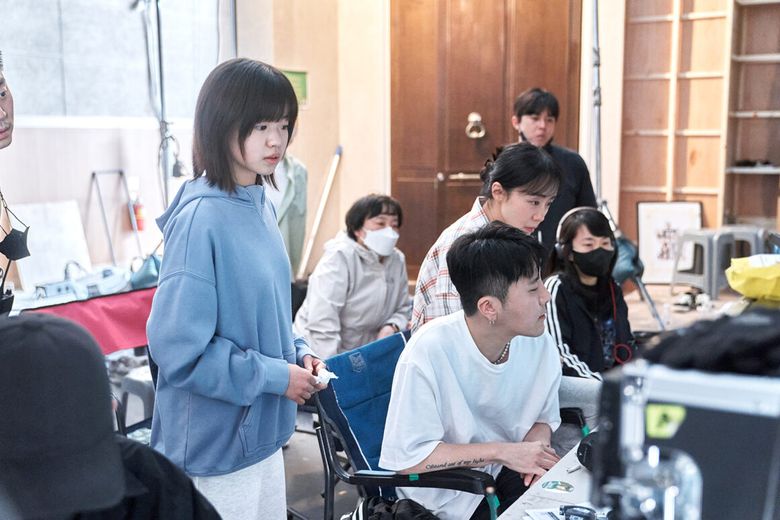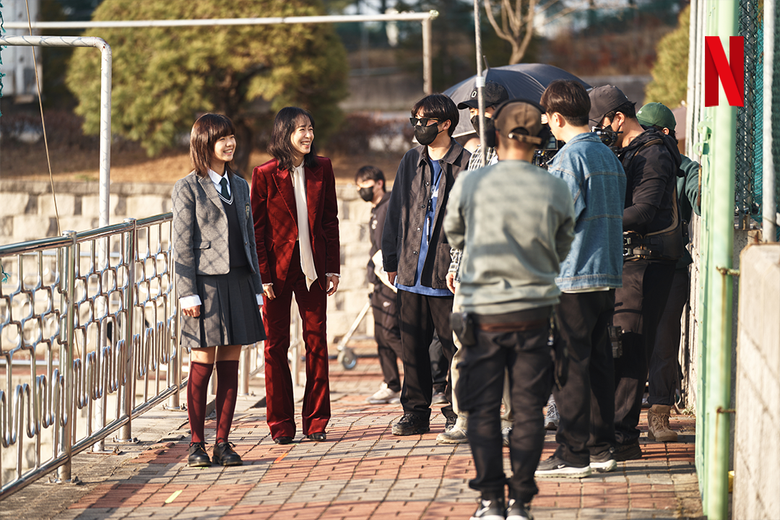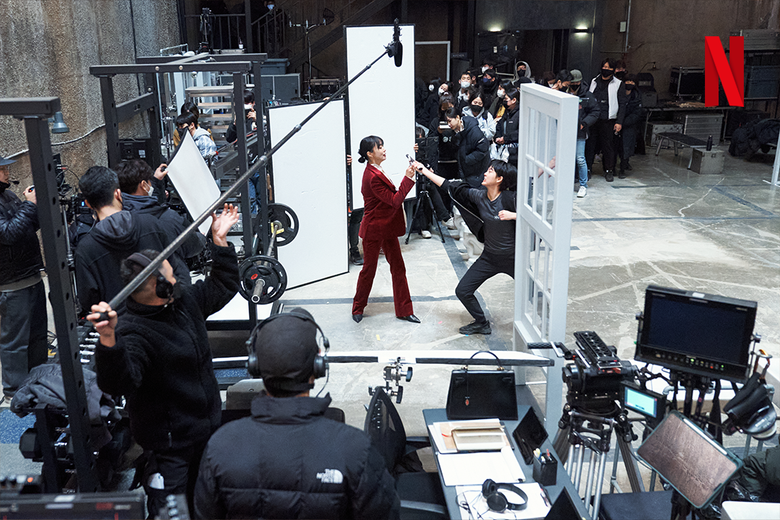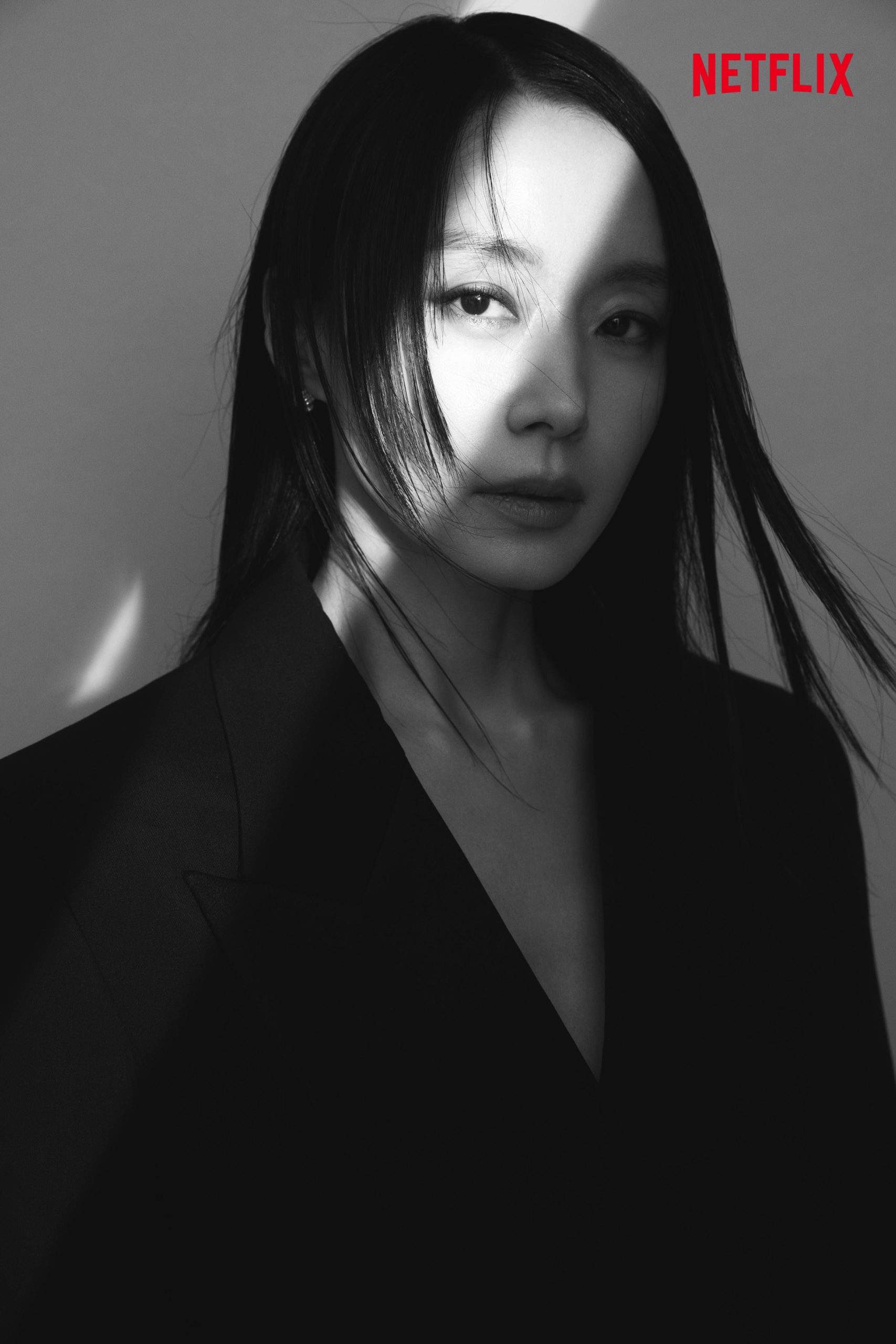Byun SungHyun is a name that many people may not be familiar with, but Korean actors and actresses all wanting to work with him. After having various successful movies under his belt including "The Merciless" and "Kingmaker," which won the best director award at the 2022 Baeksang Arts Awards as well as others, Byun SungHyun has made it as one of the most sought after filmmakers in the industry.
Byun SungHyun's recent Korean flick titled "Kill Boksoon" started as an idea based off of one of his favorite actresses, Jeon DoYeon. It's not every day you come across a filmmaker who will base his entire film on one actress, but Byun SungHyun has somehow managed to create a masterpiece of a movie off his admiration for the female lead.
"Kill Boksoon" has garnered an immense amount of success prior to the premiere this past weekend. It was invited to the 73rd Berlin International Film Festival's Berlinale Special section, filling the festival's largest venue. It received an overwhelming response for its unique narrative delivered through deft storytelling.
The storyline of the film is as follows: Boksoon leads a double life - she is both a mother of a teenage daughter and the legendary professional killer at the top-tier killing agency MK Ent. Caught in between the mission of killing someone and the mission of raising someone, Boksoon refuses to complete an assigned mission and is thrown into an inevitable fight.
It is a feel-adrenaline, fast-paced movie with the heart stemming from the immense love that Gil Boksoon feels for her daughter. Director Byun SungHyun focused on a fresh new story with action, avoiding the familiar revenge themes. The noir elements weigh in on conflicts between an individual and an organization, family drama elements that depict the closest yet most awkward facets of all relationships and humor elements tucked into every nook and cranny of the storyline — the layers of these multi-genre elements promise to enthrall audiences.
Kpopmap had the profound privilege of chatting with director Byun SungHyun about "Kill Boksoon" and the process that went into creating such an exhilarating and sincere film.
I know that you were creating the movie with Jean Dion's personhood in mind as a mother and there's a lot of themes of fairness and weakness, her weakness as being a mother. But do you think that it was more a weakness or a strength? And also we know that she is the director's weakness at the end, but it seems that she was everybody else's weakness too, including the intern who chose to stay loyal to her. And what about Boksoon made her everybody's weakness?
The notion of weaknesses. So, Boksoon's weakness as a mother is the fact that she kills people. And her weakness as a killer is that she has a daughter. That was pretty simple. And the way you illustrated how Boksoon herself becomes a weakness for other characters, for MinGyu, yes, that was very obvious. And we all want to hide our weaknesses. MinGyu also wanted to hide the fact that Boksoon was a weakness for him. Boksoon and MinGyu, they tug at each other's weaknesses, and Boksoon does it pretty openly. And I think that MinGyu also does. But on the outside, while it seems like MinGyu is coming at Boksoon with her weakness, I wanted to portray him as also a savior to Boksoon. He is described as a character who can give all and take all away. And Boksoon is a character who she says she doesn't pray to a god, but towards the end of the story, you will find her looking or searching for a godly being. And while she does so, the camera pans on the dead body of MinGyu. So I tried to bring in that sort of savior metaphor for him. There is also a scene where, in the whole death of one of the killer company representatives, the table is shaped in the form of a cross in order to metaphorically bring in that idea of the savior as well. As for the intern. I wanted every character in Kill Boksoon to love and admire Boksoon, and that was because that's how I feel about the person and the actor Jeon DoYeon herself in real life. I think that is how all of the elements came about naturally, because it started from that admiration.
I know that you started this script and this movie based on thinking of Jeon DoYeon specifically, and you've had such an impressive list of movie projects. You had "The Merciless" and "King the Maker," and you have very impressive history. How do you come up with the concepts of these particular films? Do you have a long list of ideas or does it just come to you all of a sudden?
Many directors say, and they actually have a long list of ideas for their upcoming works. I am embarrassed to admit that I'm not the planning type. And so after I'm done with a piece of work, I will wait a while and then think, okay, what next? What do I do now? Sometimes I feel like if you try too hard to think about it, it doesn't come to me. My ideas tend to come to me when I am not intentionally searching for ideas. This was the first time for me where the story all started from an actor, and I feel like it's also going to be my last time. I think going forward from my future works, I'm going to be focusing more on what kind of stories I want to tell. This time, because of the process, it was challenging in a way because there was no set story that I wanted to tell, but because it was driven from, okay, I want to work with Jeon DoYeon. What do we do? I had written the opening sequence, but after even writing, finishing writing the opening, I had to wait for months to continue writing because I just didn't have the story I wanted to tell. But over many conversations and meetings and grabbing drinks with DoYeon, I got to see the discrepancy and the irony between her being a mother and the top actor in Korea. So I was really intrigued by that, and it all started from there.
When it came to adapting the script into the film, what kind of decisions did you make in regards to the amount of violence in action.
Except for the scene when MinGyu becomes very violent with the character Sergeant Shin on the table. Except for that. The rest of the film, I wanted to make it very much like a comic book. And the reason I excluded that particular scene is because that was the climax of the conflict and an important scene in order to show the character MinGyu's violence that he holds within as well as the level of affection that he has for Boksoon. So that was an intentional decision. I wanted to bring in a very much comic book like feel to the film, which is one of the reasons behind the opening sequence. When the character Boksoon, you see her beheaded. And if you think of how her status within the Korean cinema and the industry, I felt like it was a very bold and quite an intriguing way to grab the audience, because you will see this extremely famous top actor. She's the main lead, and within just minutes of the film opening, you see her beheaded. I brought it in as sort of a witty flavor, but I did realize some people thought it was over the top violent.
I have a question regarding the female lead, Jeon DoYeon. It is understood that she got a bit injured while filming, but she did come back fairly quickly which was great! How cautious were you to prepare that the set be safe when she got back?
When you're shooting an action film, when you know issues related to safety, it's just so unpredictable. So literally, all you can do is be as cautious as possible. As for the action sequences, I did go in and curdle a little bit of the more complex or risky action sequences, but Toyon was actually she was very eager, and she expressed her intention of just wanting to do everything as was originally written. But despite that, I decided to go ahead and sort of adjust a little bit. Parts of action scenes that I felt were maybe a little too dangerous. But from the next day, since her injury. DoYeon and I, we both said we are never doing an action film again and we would have jokingly our camera director also would say, yeah, this is not something to do because even from just watching what was going on on set, it was quite a painful process for this film. Also, because we didn't have a lot of stunt doubles, most of the action packed scenes had to be done by the characters themselves because of the certain ways the scenes were made. And so no matter how much preparation and training we went through, there were inevitable shortcomings. So rather than putting in any extra caution or additional mechanisms or anything, we just made some changes in terms of methodology of the shooting. So for some of the longer takes, we decided to divide it into shorter ones and whatnot.
While watching the movie, I realized that "Kill Boksoon" is not just about revenge. You haven't taken that cliched approach about the hired contract killers storyline, but it has a sense of emotion in it. Was that a conscious decision? Was that done before you wrote the script or did it just happened while you were writing one character. Also, you played with colors so well in the movie. Does this have any meaning to the story?
When you hear the subject matters of killer and mother daughter relationships, everybody has a scenario that they can easily predict. Either the daughter is kidnapped or the daughter dies and you want to avenge for her or third, you have to fight in order to protect your daughter. And these three things were things that I wanted to make sure we avoided for "Kill Boksoon" and in the action scenes as well. And this kind of relates to what I answered to the previous question. I wanted to make sure that Boksoon will never fight anonymous characters in the film, that Boksoon will only fight characters that the audience has become introduced to or got to know through the story and the film. I wanted to make sure it wasn't going to be a film about motherhood or about motherly love or about sacrifice that was driven by motherhood. I wanted to tell a story where the mother and daughter were individuals on their own who achieved personal growth. As for the use of colors, we did use a lot of different colors, but in particular, I used a lot of contrast between red and green. Green is the color that represents how the mother wants to see her daughter. And it is the perspective of the mother that portrays how she wants her daughter to be like, but it's not the daughter's actual identity. In fact, as you can see in the last scene when JaeYoung is wearing a red jacket, her color, the daughter's color, is actually red, exactly like Boksoon's color. And it's also seen in the side dishes that JaeYoung always wants to eat versus what the mother always makes her eat. And also it's seen through the green room and the house plants as well. When the scene where JaeYoung is coming out to her mother, you will see Boksoon leave the room filled with plants and see JaeYoung within the green room filled with plants. So I try to draw a contrast there as well. And in scenes when they're changing clothes, if Boksoon is wearing an all red suit, you will see that JaeYoung is wearing socks, maybe that are a little bit red, just to show that she harbors this sense of her that is represented by the color red.
Thank-you again to Netflix and director Byun SungHyun for joining us to discuss the film "Kill Boksoon." It is now available for streaming on Netflix.

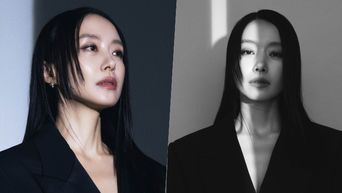
"Kill Boksoon" Legendary Star Jeon DoYeon On Acting Career And Parallels With Personal Life & Characters | Exclusive InterviewFeatured CollabApr 3, 2023

